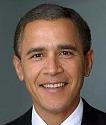|
You could probably put me in the same camp as everyone who snapped off winning the exchange to go up a clean Rook and then probably something lazy like h3 just out of "don't get back ranked" panic.
|
|
|
|

|
| # ? May 31, 2024 10:58 |
|
Playing Advance French (or Caro Khan that transposes) as black, at my level white always moves their bishop to b5 to pin my knight. I can move my bishop or queen to kind of force the issue but white will almost always take the knight. The videos I watch about Advance French never mention this, like it's not something white would ever consider doing. But that kind of undermines the entire point of the French as I understand it, which is piling up on d4. Is my compensation that I now have the bishop pair and I should just call that a win? The alternative is to spend a tempo one move earlier with a6 but then I'm a whole tempo down and I can immediately feel the consequences.
|
|
|
|
Yeah all the advice I've seen from higher level players is that it's generally a bad idea to concede the bishop pair so early in the game. In your specific example with the French, it might take away your immediate idea in the opening but it comes at the expense of a long-term weakness for white so the reason why the lessons on the opening don't cover it is that at that point white has stopped making the best moves and you're already out of the opening.
|
|
|
|
 lmao lol, 2 games in a row where white just automoves for a fried liver and loses a pawn and a knight in 5 moves. Finally making some progress, 600 on chesscom and 1100 on lichess
|
|
|
|
just played a 15 minute game where i managed to make the correct central pawn move during the middle to maintain tension and then later open up the board in a favorable way. super happy, because that's usually where i blunder an even opening https://www.youtube.com/watch?v=pOzaIcZwpwQ&t=59s this is what i think of now whenever i'm trying to mabye win a pawn several moves down the line
|
|
|
|
 I thought this puzzle was cute. Seems to be a real simple tactic but there is another layer to it. Black to move.
|
|
|
|
Zwabu posted:
Hmm, I must be missing something here. Ne3+ fxe3(or K-any) Qxf6? Ng6 is a mate threat but the queen now defends it.
|
|
|
|
fisting by many posted:Hmm, I must be missing something here. After ..Qxf6, f4 carries the threat of mate from White's knight attacking from that square. Black's queen cannot defend that threat, and sacrificing the queen for the knight leaves Black with a lost ending. Edited to get the squares right lol
|
|
|
|
Zwabu posted:After ..Qxf6, f4 carries the threat of mate from White's knight attacking from that square. Black's queen cannot defend that threat, and sacrificing the queen for the knight leaves Black with a lost ending. oooooh I thought gxf4 and the king has an escape, forgetting the knight covers that too Then f4 g4 defending Nf3 and everything's finally good right? White can capture with a pawn but that just creates space for black to escape.
|
|
|
|
fisting by many posted:oooooh I thought gxf4 and the king has an escape, forgetting the knight covers that too Yeah that is the saving resource. When I was initially solving it, I did not even see the mate threat from White’s knight. I figured from the level of the puzzle that there would be more than just the knight check winning White’s Queen through discovered attack, but I thought it would be something like Black could win back the Queen with a knight fork or something. Once the mate threat was revealed I had to think a bit to find the proper defense.
|
|
|
|
I came across a Hikaru clip the other day where he said something like (paraphrasing) "99% of chess is spotting tactics and you can probably reach somewhere around master level on tactics alone", so that being said does anyone itt have any good (preferably free) resources for training tactics that they wanna share? I understand that puzzles are basically just tactic-spotting exercises but I guess I'm looking for something more explicitly tactic-oriented, broken down into like "100 Fork-Spotting Exercises", "100 Pin...", "100 Skewer..." etc, to really drill into my head that these are the specific patterns and configurations I should be on the lookout for, if that makes sense
|
|
|
|
multistability posted:I came across a Hikaru clip the other day where he said something like (paraphrasing) "99% of chess is spotting tactics and you can probably reach somewhere around master level on tactics alone", so that being said does anyone itt have any good (preferably free) resources for training tactics that they wanna share? I understand that puzzles are basically just tactic-spotting exercises but I guess I'm looking for something more explicitly tactic-oriented, broken down into like "100 Fork-Spotting Exercises", "100 Pin...", "100 Skewer..." etc, to really drill into my head that these are the specific patterns and configurations I should be on the lookout for, if that makes sense https://www.chesstactics.org
|
|
|
|

|
|
|
|
Lichess has a puzzle option where you can filter for specific puzzle types. Mate in 1, forks, pins, etc.
|
|
|
|
CubicalSucrose posted:Lichess has a puzzle option where you can filter for specific puzzle types. Mate in 1, forks, pins, etc. I do find one problem puzzles tend to have as practice for real games is that the nature of a puzzle means that you know there's a thing to spot. Being able to look at a position and go "there's something tricky here" is really the hardest part. It does help to get better at tactics because some specific patterns do occur a lot in real games (man I used to get got by knight forks so often until I started doing puzzles), but I think it can be helpful to try uncategorized puzzles, to practice that ability to just find the best move, without the extra hint of what the best move might be. *edit* actually I have a pretty good example from a recent game, I had this position, where the tactic should be pretty easy to spot and I expect most people in here to see it, but I missed it in the game because I was more focused on avoiding getting back-rank mated and played Nd2 instead. It wasn't a super costly mistake since I was already up a minor piece at this point but it's a pretty crushing blow (white to move, although that should be pretty obvious since if it was black's turn it's just a M1):  Incidentally this wasn't even me just having a particularly dumb day; I actually had 95% accuracy in this game and this was my only serious miss. The issue I had was basically that I moved the Queen to g4 to defend the knight on d7, without even really thinking about how it would also pin the g7 pawn to the king. So in my head, f6 was still protected and if I took the bishop it would just be an equal trade and my knight was too well positioned to want to trade it off. Meanwhile I saw the threat of Qe1# and wanted to address that since blundering a M1 when I'm already up material is obviously a pretty bad thing to do. I just completely missed that Nxf6 wins the queen by force and I didn't even really need to worry about the back rank threat. The Cheshire Cat fucked around with this message at 00:40 on Dec 6, 2023 |
|
|
|
The problem with the line of thought that chess is 100% tactical is that tactics aren't independent of the position, and the position depends on the moves you made when you didn't have a tactic. Someone who's making random legal moves will have fewer opportunities available to them than someone following principles, developing pieces to better squares, having a better pawn structure, doing prophylaxis etc. As a basic example, putting your rook on the same file as the opponent's queen when there are three pieces in between isn't an immediately tactical play. But five moves down the line it could pay off. Or in other words, being better at tactics involves both solving the puzzle and making the puzzle position happen in the first place.
|
|
|
|
Redmark posted:The problem with the line of thought that chess is 100% tactical is that tactics aren't independent of the position, and the position depends on the moves you made when you didn't have a tactic. that's why I think you have to know your openings somewhat. knowing the main lines leads to predictable positions that can lead to tactics. if you're just throwing things out there, good luck recognizing a position or pattern. I have played probably 3000 games of vienna and caro. I don't win all of them but it makes it MUCH EASIER that I know 3-4 variations of each 10+ moves in and can spot patterns and structures from them
|
|
|
|
to say, that's why I don't like knowing the puzzle theme ahead of time. if I know I'm looking for a pin, it makes it easier. a lot of people hate on gothamchess, but his chessly site Antipuzzle is cool as hell - it first asks you if there even is a tactic, and if there is, what is it also why I like lichess puzzles bc they are taken from actual games, and you will recognize positions from your own and be like oh holy poo poo I've never seen that and now I do big trivia FAIL fucked around with this message at 03:20 on Dec 6, 2023 |
|
|
|
Yeah, even though puzzles are generally teed up for you at the point of the tactic, doing a lot of them still does help you recognize the patterns for that tactic, making it more likely for you to recognize it in a game, either right on the spot or sometimes even a move or two earlier. If you do a metric ton of puzzles the elements of a back rank mate are something that catches your eye right away, likewise noticing that a queen and rook are on the same color square and thus might be subject to a knight fork, or a skewer or pin if they are on the same diagonal. I think the thing of seeing tactics in a game, at least for a low scrub like me, is not so much seeing it right when the critical move is available but noticing the elements for that tactic are in the position so you might be able to calculate it a move or two earlier. If you've done a ton of puzzles then stuff like an Anastasia mate or a queen sac into smothered mate comes up from time to time and have a specific pattern or appearance on the board that draws the eye, causing you to at least consider the possibility in a game and maybe do a quick calculation on whether it's feasible to force it or use it to gain some other advantage.
|
|
|
|
really drilling down and mastering basic tactics with some fundamentals got me to 1000's on chess.com pretty quickly. becoming familiar with one opening for each color (as black i just hope they don't play d4), and getting comfortable multiple moves down the most common lines got me to 1400s , where i languish because i don't want to study more
|
|
|
|
A big eye-opener for me was when someone said, "being better at chess doesn't, in and of itself, make chess more fun." If you snap your fingers and suddenly go from a 1400 to a 1600, you'd have a month where you went 30-10 then settle back at 50%. The only reason to spend dozens or hundreds of hours in serious study and puzzles and opening prep is to have a better understanding of the game for your own pleasure. If you want to know nothing and be surprised by every Knight fork when it happens, your matchups will reflect that mindset on both sides and you're going to win 50% of your games. If you want to spend a hundred hours on puzzles and drill 10 moves of opening theory, your matchups will reflect that mindset as well and you're going to win 50% of your games. I'm very much a homework guy, but one for whom the game does not come naturally. I'm crazy jealous of the people who are like, "I just played what felt like natural moves and I hit 1200 basically immediately." The "no opening prep to 2k" people genuinely baffle and scare me.
|
|
|
|
I think "no opening prep" just means that they check their own games or remember what not to do from playing the opening a lot (which not everyone can do depending on how talented they are). I don't think you can make it to 2k playing bad moves in the opening unless you're a sandbagging GM. Basically if you're getting owned in the opening a lot it's probably time to study. If you're not then do whatever.
|
|
|
|
Redmark posted:I think "no opening prep" just means that they check their own games or remember what not to do from playing the opening a lot (which not everyone can do depending on how talented they are). I don't think you can make it to 2k playing bad moves in the opening unless you're a sandbagging GM.
|
|
|
|
Its such a nice feeling when you know an opening well enough to have memorized blunders your opponent can make. I'm not good enough to enjoy finding combinations, but when you get 1.e4, e5 2.d4, f6 or something its just excellent. edit: in fact, thinking about it now, I think studying main lines for 10 moves of "what's the computer move here" is a wrong way to start out. Instead you should be thinking "what bad move is my opponent going to blunder into 3 moves into this opening". Salt Fish fucked around with this message at 19:39 on Dec 6, 2023 |
|
|
|
The Lichess database is great for this, because you can filter responses by Elo/time control. So rather than spend any time preparing for the most testing white responses to your Sicilian (or whatever), you can look and see that only 2% of players at your level go into it and spend your time on lines that actually get played. One thing I've done is, every game I play if the first non-book move I make is an inaccuracy or worse, it goes into a Lichess study named, "Opening Mistakes." A note of the right move plus the move I made instead and why it was bad. Then I just run through it every now and again. Huxley fucked around with this message at 21:12 on Dec 6, 2023 |
|
|
|
Redmark posted:I think "no opening prep" just means that they check their own games or remember what not to do from playing the opening a lot (which not everyone can do depending on how talented they are). I don't think you can make it to 2k playing bad moves in the opening unless you're a sandbagging GM. Yeah while it obviously helps a lot to study known lines, with computer analysis you can learn a lot from your own games because even if you aren't consciously studying opening theory, the computer will just tell you what you should have done anyway.
|
|
|
|
Salt Fish posted:Its such a nice feeling when you know an opening well enough to have memorized blunders your opponent can make. I'm not good enough to enjoy finding combinations, but when you get 1.e4, e5 2.d4, f6 or something its just excellent. Yeah, while crazy gambit lines and traps or whatever get the most views, "traps" in standard openings are probably the most important things. My favorite example is this position which (at least up to 1500+):  Playing an early Bf5 or Bg4 looks normal, but it's a mistake, which I'd guess happens >75% of the time when my opponent plays d5 c3. Although the engine says it's not losing, that's only if Black backtracks by playing Bc8 (which I have never seen happen). Most of the time it's a massive advantage if you know what to do, and I've lost count of how many games I've won this way. Understanding this position also helps me with a bunch of similar cases in other openings where moving the Bc1 or Bc8 critically weakens the b-pawn (where otherwise I'd have no idea why the engine suggests a certain move). Of course it's equally important not to play into these yourself.
|
|
|
|
big trivia FAIL posted:that's why I think you have to know your openings somewhat. knowing the main lines leads to predictable positions that can lead to tactics. if you're just throwing things out there, good luck recognizing a position or pattern. I have played probably 3000 games of vienna and caro. I don't win all of them but it makes it MUCH EASIER that I know 3-4 variations of each 10+ moves in and can spot patterns and structures from them I guess that's why you can do puzzles in Lichess filtered by openings.
|
|
|
|
PerniciousKnid posted:I guess that's why you can do puzzles in Lichess filtered by openings. yes but have you considered that playing games is more fun than doing puzzles
|
|
|
The Cheshire Cat posted:I do find one problem puzzles tend to have as practice for real games is that the nature of a puzzle means that you know there's a thing to spot. Being able to look at a position and go "there's something tricky here" is really the hardest part. It does help to get better at tactics because some specific patterns do occur a lot in real games (man I used to get got by knight forks so often until I started doing puzzles), but I think it can be helpful to try uncategorized puzzles, to practice that ability to just find the best move, without the extra hint of what the best move might be. I'm working through this chessable course, and its real strength, beyond learning how to spot tactics like Tal, is that they step back a few moves from the tactic to show how he set them up in real games. This is part 1 of 2, should be like 1000 trainable variations should I do both. Very informative, and applicable to real games.
|
|
|
|
|
big trivia FAIL posted:yes but have you considered that playing games is more fun than doing puzzles No.
|
|
|
|
Epic username I spotted: "Full-Metal-Calvinist"
|
|
|
|
A terrible blunder by my opponent and a child could find it, but it was nice to have a queen sac #.  e: https://lichess.org/HBzdQqHU/black#32 Bruce Hussein Daddy fucked around with this message at 01:35 on Dec 10, 2023 |
|
|
|
i need a toggle between sober and drunk competitive play so i can calculate exactly how much elo i lose slamming the play button a few drinks in
|
|
|
|
GhostofJohnMuir posted:i need a toggle between sober and drunk competitive play so i can calculate exactly how much elo i lose slamming the play button a few drinks in having a drunk alt is a strategy endorsed by the strongest player alive
|
|
|
|
one for sober one for drunk one for hungover
|
|
|
|
Ive figured out something in this game I guess, since Im getting multiple rage quits in ranked now. Feels just as good as it does in fighting games
|
|
|
|
A while back I said I was having a good time playing anon games on Lichess, and I would like to revise my advice to, "do not do this for very long." It turn out that when games mean literally nothing, you get in a weird bad habit of just conceding over anything. It starts as "whoops blundered a piece" and pretty soon you are quitting over annoying pawn structures and not making any actual progress on your game. e: Also they say a great way to improve is by losing games to people who are better than you, but I would not recommend doing it nonstop for a month. It does weird things to your ego to feel like you're putting in the puzzle/game work but still not win a rapid game since Halloween. Huxley fucked around with this message at 20:24 on Dec 11, 2023 |
|
|
|
Huxley posted:A while back I said I was having a good time playing anon games on Lichess, and I would like to revise my advice to, "do not do this for very long." It turn out that when games mean literally nothing, you get in a weird bad habit of just conceding over anything. It starts as "whoops blundered a piece" and pretty soon you are quitting over annoying pawn structures and not making any actual progress on your game. Conceding is an option?
|
|
|
|

|
| # ? May 31, 2024 10:58 |
|
Huxley posted:A while back I said I was having a good time playing anon games on Lichess, and I would like to revise my advice to, "do not do this for very long." It turn out that when games mean literally nothing, you get in a weird bad habit of just conceding over anything. It starts as "whoops blundered a piece" and pretty soon you are quitting over annoying pawn structures and not making any actual progress on your game. Why not take the opposite tack and play out your games until someone gets checkmated (or your opponent resigns)? Depending on your level, you'd be surprised how often your opponent blunders to put you right back into a playable or even winning position. Also, when you lose so many games it should run your rating down to where you are winning some games at some point unless you are literally quitting after a few moves every time, in which case yeah maybe this game is not for you. CubicalSucrose posted:Conceding is an option? You can resign at any point, just like in over the board chess! You just click twice on the flag.
|
|
|
































